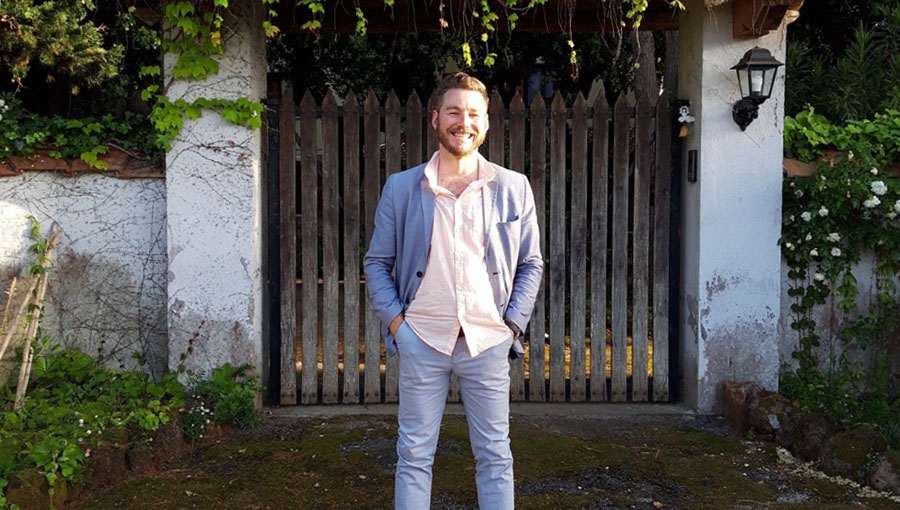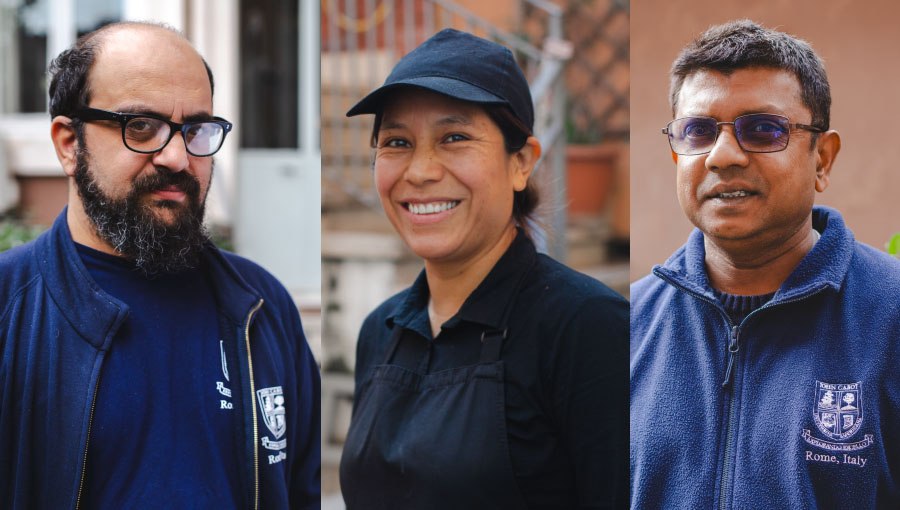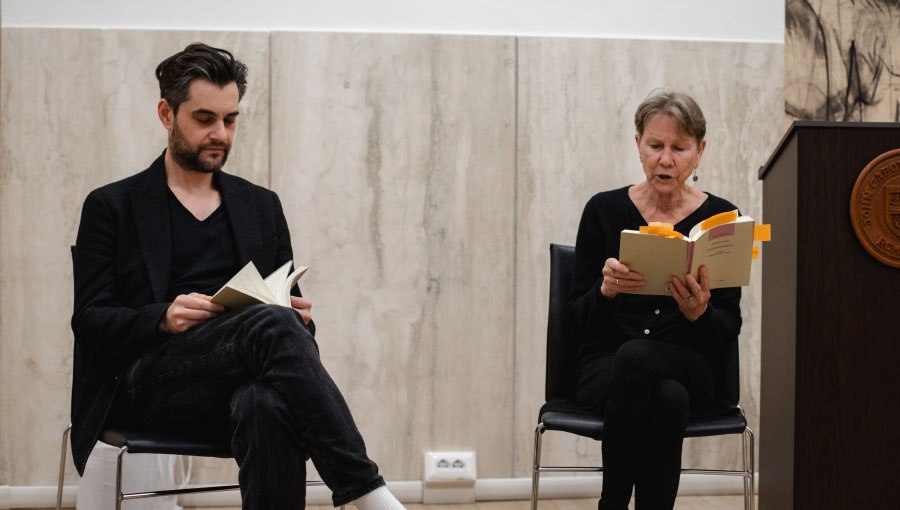Feasting on Words: English Professor Alex Gregor
Professor Alex Gregor was born in Atlanta, Georgia. He teaches in the Department of English Language and Literature at John Cabot University and is one of the founding editors of OOMPH! Press, an international literary press publishing contemporary poetry and short prose in translation. A writer and editor, he recently published the poetry collection The Pollen Path (Radioactive Cloud, 2019).

Alex Gregor
What brought you to JCU?
I came to John Cabot University by way of poetry — I was swept up in a parade on Carnevale and invited to a reading in Trastevere, which was only a few steps from the university’s doors.
What is your teaching philosophy?
My teaching philosophy is grounded in Jean Piaget’s theory of constructivism, which argues that people produce knowledge and form meaning based on their own experiences. I strongly believe that creating and maintaining comfortable and fun learning environments where content is meaningful, interesting and relevant is the best way to foster student development. My classes are student-centered and instructor-led. While I determine the major goals of my courses — within the constraints of departmental and institutional requirements, of course — I adapt each lesson to the interests and needs of the students — both on an individual- and class-based level.
Tell us about your latest book of poetry The Pollen Path.
The Pollen Path is a book of poetry featuring work written between May 2014 and January 2019, following my travels across the Americas and Europe. It is framed by the Navajo Pollen Path, a chant sung at rituals and ceremonies that represents the Navajo people’s belief in spiritual enlightenment. The Navajo Pollen Path, according to Joseph Campbell — acclaimed scholar of comparative mythology and religion — relies on specific “mythic motifs” that are universal throughout civilizations across time and space. In other words, the Navajo Pollen Path, like the Buddhist Middle Way, sprang forth from Carl Jung’s collective unconscious and took on the shape and form of its local culture and surroundings. The Pollen Path, then, is my own attempt of communing with the songbirds of the unconscious.
What is the mission of OOMPH! Press?
The mission of OOMPH! — an international literary press focused on publishing contemporary poetry and short prose in translation — is to find new literature written in countries around the world and facilitate its translation into English, as part of a larger goal to encourage cross-cultural and linguistic exchange between Anglophones and the non-English-speaking world. We publish journals and books that showcase work from poet-translators moving across the gutters to render English-language translations that we believe exhibit literature’s capability of bridging the divide between languages and cultures. In other words, we’re committed to the cross-pollination of words and what they carry with them.
What was one challenge that you encountered during your professional career and how did you overcome it?
The most daunting challenge I’ve ever experienced in my professional career occurred after graduating from a master’s program in Literary Studies from Georgia State University and moving from Buenos Aires to Rome. Even though I had taken many courses in pedagogy, taught for several years and completed countless research projects that had culminated with long term papers and seminar presentations, I was not aware of the actual skills I had acquired, let alone how to transfer and apply these skills in contexts other than academia. In short, I didn’t know how to get a job. Overcoming this challenge required, above all else, conversations and support from people who were more experienced than me, combined with an incredible amount of patience and perseverance.
What’s one tip that you would give to aspiring writers and editors?
Write from the gut, not from the head. Surround yourself with people whom you admire. Develop a curatorial eye. Develop taste. Engage with all art forms. Don’t just hang out with writers; better yet, actively seek out people who are different than you. Wait to publish — if your writing isn’t original, authentic and truly yours, don’t submit. Hone your voice. Write in rhythm. Take notes — your best work will start as scribbles and scrawls in the margins.
What are three books that everyone should read and why?
The Inner Reaches of Outer Space (1986) by Joseph Campbell, The Mind in the Cave (2002) by David Lewis-Williams, and Guns, Germs, and Steel: The Fates of Human Societies (1997) by Jared Diamond. Read these because good non-fiction is at the heart of all good poetry.
Tell us about your new course, Creative Writing Workshop: Food Writing. What can students expect from it?
There is a term in Spanish, sobremesa, which refers to the period of time after a meal spent sitting around the table in conversation. It is my hope that we spend the entire semester around the conference table living out a 15-week period of this delightful ritual. We will feast on words.
Any future projects?
I’ve got two poetry manuscripts in the oven: The Dowsing Rod and The Dust That Sings. I am the banjo player in the band The Ship & the Swell, and we are currently in the studio recording an EP. As far as OOMPH! Press is concerned, while we’re not quite ready to announce any forthcoming titles, let’s just say that we are excited about what the future holds for us. To learn more about all projects — previous, ongoing and forthcoming — visit www.marginalcomets.com





